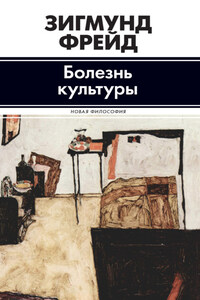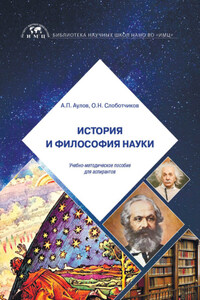Preface
Why this Book is Written
In the following pages I have attempted to take the reader behind the veil of the Imperial Russian Court, and to disclose certain facts which, in this twentieth century, may appear almost incredible.
As one who knows Russia, who has traversed the Empire from Virballen to the Pacific coast, and who has met personally both the ex-Emperor and his consort, as well as many of the persons herein mentioned, I confess that I myself have often been astounded when examining the mass of documents which this dirty Siberian peasant – the convicted horse-stealer who rose to be the secret adviser of Nicholas II – had happily secreted in the safe in his cellar in the Gorokhovaya, in Petrograd, so that the real truth of his traitorous dealings with the Kaiser might be chronicled in history.
I had hoped to be able to reproduce many of the cipher telegrams and letters in facsimile, but the present shortage of paper has precluded this, and it could only be done if this book were issued in expensive form.
To me, it seems best that the British public should have access to it in a cheap and popular form, and hence I have abandoned the idea of facsimiles.
I here publish the story of the mock-monk’s amazing career as a further contribution to the literature upon Germany’s spy system and propaganda so cleverly established as an insidious adjunct to her military attack upon the civilisation of our times.
The conversations herein recorded have been disclosed by patriotic Russians, the truth has been winnowed out of masses of mere hearsay, and the cipher telegrams and letters I have copied from the de-coded originals placed at my disposal by certain Russians, Allies of ours, who desire, for the present, to remain anonymous.
William Le Queux.
Devonshire Club, London, S.W.
November, 1917.
Chapter One
The Cult of the “Sister-Disciples.”
The war has revealed many strange personalities in Europe, but surely none so sinister or so remarkable as that of the mock-monk Gregory Novikh – the middle-aged, uncleanly charlatan, now happily dead, whom Russia knew as Rasputin.
As one whose duty it was before the war to travel extensively backwards and forwards across the face of Europe, in order to make explorations into the underworld of the politics of those who might be our friends – or enemies as Fate might decide – I heard much of the drunken, dissolute scoundrel from Siberia who, beneath the cloak of religion and asceticism, was attracting a host of silly, neurotic women because he had invented a variation of the many new religions known through all the ages from the days of Rameses the Great.
On one occasion, three years before the world-crisis, I found myself at the obscure little fishing-village called Alexandrovsk, on the Arctic shore, a grey rock-bound place into which the black chill waves sweep with great violence and where, for four months in the year, it is perpetual night. To-day, Alexandrovsk is a port connected with Petrograd by railway, bad though it be, which passes over the great marshy tundra, and in consequence has been of greatest importance to Russia since the war.
While inspecting the quays which had then just been commenced, my friend Volkhovski, the Russian engineer, introduced me to an unkempt disreputable-looking “pope” with remarkable steel-grey eyes, whose appearance was distinctly uncleanly, and whom I dismissed with a few polite words.
“That is Grichka (pronounced Greesh-ka), the miracle-worker!” my friend explained after he had ambled away. “He is one of the very few who has access to the Tsar at any hour.”
“Why?” I asked, instantly interested in the mysterious person whose very name the Russian Censor would never allow to be even mentioned in the newspapers.
My friend shrugged his broad shoulders and grinned. “Many strange stories are told of him in Moscow and in Petrograd,” he said. “No doubt you have heard of his curious new religion, of his dozen wives of noble birth who live together far away in Pokrovsky!”
I glanced back at the receding shock-haired figure in the long black clerical coat and high boots, little dreaming that I had met the mock-Saint whose evil influence was to cause the downfall of the Imperial House of Romanoff.
Strange it is that to-day I have before me the amazing official reports of his career from revolutionary and private sources – reports from which I intend to here set out certain astounding facts.
First, it is quite beyond question that the Pravoslavny Church, with its malign influences and filthy practices, is, in the main, responsible for Gregory Novikh’s success as a worker of bogus “miracles.” The evil-minded libertine upon whom his fellow-villagers in Pokrovsky, in the Siberian Province of Tobolsk, bestowed the name of Rasputin (or in Russian, “Ne’er-do-well-son),” was a fisherman who possessed an inordinate fondness for the village lasses, and also for vodka. A mere illiterate mujik, disgusting in his habits and bestial in his manners, he grew lazy and dissolute, taking to theft and highway-robbery, for which, according to the official report of the Court of Tobolsk, before me, he was imprisoned twice, and a third time was publicly flogged and so degraded that he was compelled to bid farewell to Pokrovsky, much to the relief of the villagers. Behind him he left a peasant wife, a little son, named Dmitri, and two daughters. He also left behind him a handsome young peasant woman known as Guseva, a person who was destined to contribute a few years later in no small measure to his dramatic death. Sins always follow the sinners.














